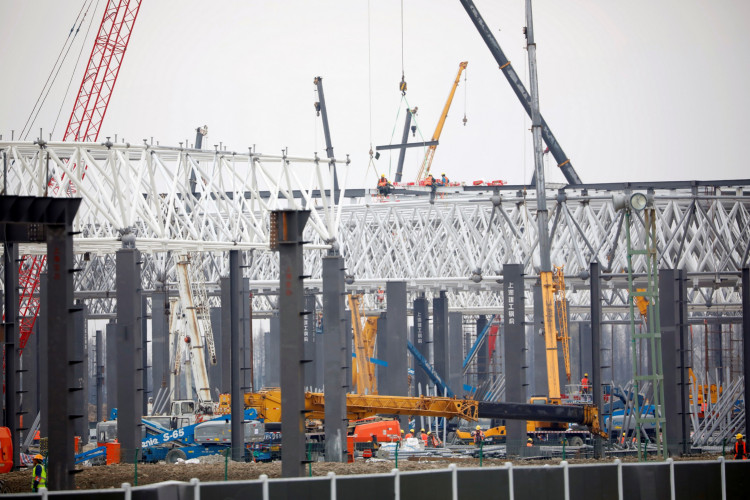It's an open book that Tesla and Panasonic are partnering to bolster the manufacturing capacities of Gigafactory. As the world's largest factory that produces batteries for Tesla's electric vehicles, Gigafactory comes with a promise to make the Elon Musk-led outfit the leading EV producer. Recent reports, however, suggest that things aren't going exactly as planned.
Nikkei Asian Review said in an article that Tesla and Panasonic have decided to "freeze" their plans to put additional investment in Gigafactory 1 located in Nevada. Prior to the decision, both companies targeted a 50% increase which was supposed to take effect next year. But with the current dip in electric vehicle sales and performing below expectations, the increase will have to take a back seat as Tesla and Panasonic ponder on what's good for Gigafactory.
While investing a rather large amount of money pose too large a risk, the website added that Tesla's plan to produce 1million electric vehicles a year will also be put on hold. By this, Musk will have to re-think of a new strategy to make his dream of becoming the world's premier EV manufacturer into reality.
The Gigafactory in Shanghai will also suffer the same fate, according to CNet. Tesla's second plant, which will also "build cars" alongside its integrated automotive batteries, will suffer the same fate as Panasonic will cease investing. Gigafactory 2 was a hopeful jump to eliminate Tesla's strenuous and costly shipping process. Instead, Panasonic will provide "technical support and small number of batteries".
To provide insight, Reuters echoed a statement coming from a Tesla spokesperson regarding the matter. The representative said that both companies "continue to invest substantial funds" to keep the cogs of Gigafactory turning. They also believe that there is more "output to be gained" if they improve their current production equipment than they have "previously estimated."
The Nevada-based Gigafactory has been producing the batteries of the Model 3 since 2017. For their part, Panasonic supplies the cells, while Tesla converts them into battery packs. The plan is said to have the capability to produce more than 500,000 electric vehicles per year. This would go up if their plan to expand the current 35 gigawatt-hours to 54 gigawatt-hours had pushed through.
Apparently, losses due to the delay in the production of the Model had made the biggest impact on the decision. Nikkei said that Panasonic suffered a whopping 20billion Yen in operating losses during their financial year that ended last month. Musk's ongoing scuffle against the SEC and a 30% slump in units sold also contributed to the decision, it added.






